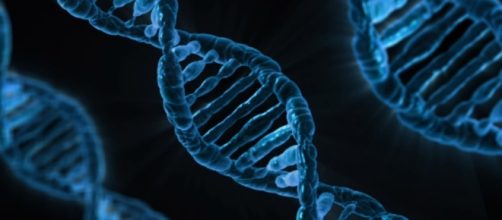Scientists at Oregon Health and Science University have definitely marked a major milestone when it comes to Gene Editing. According to reports, they have edited the genes of human embryos for the first time but the experiment is just a "science exercise," MIT Technology Review stressed.
Embryo genes editing has been considered a way for the better comprehension of human development. The alterations associated in gene editing, however, are permanent and would be “passed down" to any offapring.
With #geneediting, the changes are permanent and passed down to any offspring. #CRISPR https://t.co/wFIFmfYTMq
— Cedars-Sinai (@CedarsSinai) July 27, 2017
Thanks to the CRISPR technique, scientists were able to modify or take out specific DNA sections.
This approach, however, has sparked controversies over the potential emergence of Genetically Modified babies or the so-called “designer babies,” whose genes could be altered to produce “desirable traits.”
The experiment
As experts seek ways to help babies in the early detection and avoidance of inherited or genetic diseases, the scientists were able to create IVF embryos by utilizing the sperm from male donors with "inherited disease mutations." The experiment led by Shoukhrat Mitalipov reportedly suggested that gene editing could work as they were able to “significantly reduce mosaicism."
The embryos, however, were not given the opportunity to develop any further. Since the project was treated as a scientific exercise only, the embryos were not intended to be implanted into a womb.
First Human Embryos Edited in U.S. https://t.co/a4kyrK2YAd #crispr #genomeediting #geneediting
— TeselaGen Biotech (@TeselaGen) July 27, 2017
Is gene editing acceptable?
Even though the experiment marks a major milestone in the field of science and technology, it also raises some fears and concerns. That is why the National Academy of Sciences and the National Academy of Medicine announced their stance on the issue earlier this year. The organizations stressed that the process of gene editing of human embryos could be acceptable if done under “strict criteria” and if the intentions are only for the prevention of “serious diseases.”
University of Wisconsin-Madison bioethicist R. Alta Charo also echoed the thoughts of the National Academies, saying the Oregon experiment is only the initial phase for experts to learn how to make “precise and safe” human gene editing practices.
Charo also underscored the “regulatory barriers” in the States and the important role of the public when it comes to gene editing.
‘Unstoppable, inevitable science’
Despite the concerns and fears over the possible creation of super humans, Scripps Translational Science Institute director and genetics expert Dr. Eric Topol stressed that the process of human embryo gene editing is an “unstoppable, inevitable science.” Topol also revealed that several gene-editing experiments are already underway in the U.S., which aim to develop treatments for various diseases.
In order to develop a cure, however, the genetics specialist said it should get to the “embryo stage.” As of writing, the U.S. government does not allow any clinical trials associated with gene editing of human embryos to proceed in the country.
US scientists have genetically modified human embryos https://t.co/OrERRoTILU #crispr #geneediting pic.twitter.com/VEyebKAsK8
— Amar Riyaz (@RiyazAmar) July 27, 2017
Unintended consequences
The potential of the CRISPR technique indeed looks promising. However, it is still a newfangled approach that could bring unintended consequences. Based on the previous study in the journal Nature Methods, the CRISPR-Cas 9 system could lead to inadvertent genome mutations.
Meanwhile, this is not the first time that the world learned about the experiments on embryo gene editing. As a matter of fact, there have been three published reports about the process, but all of them were done by Chinese researchers.


